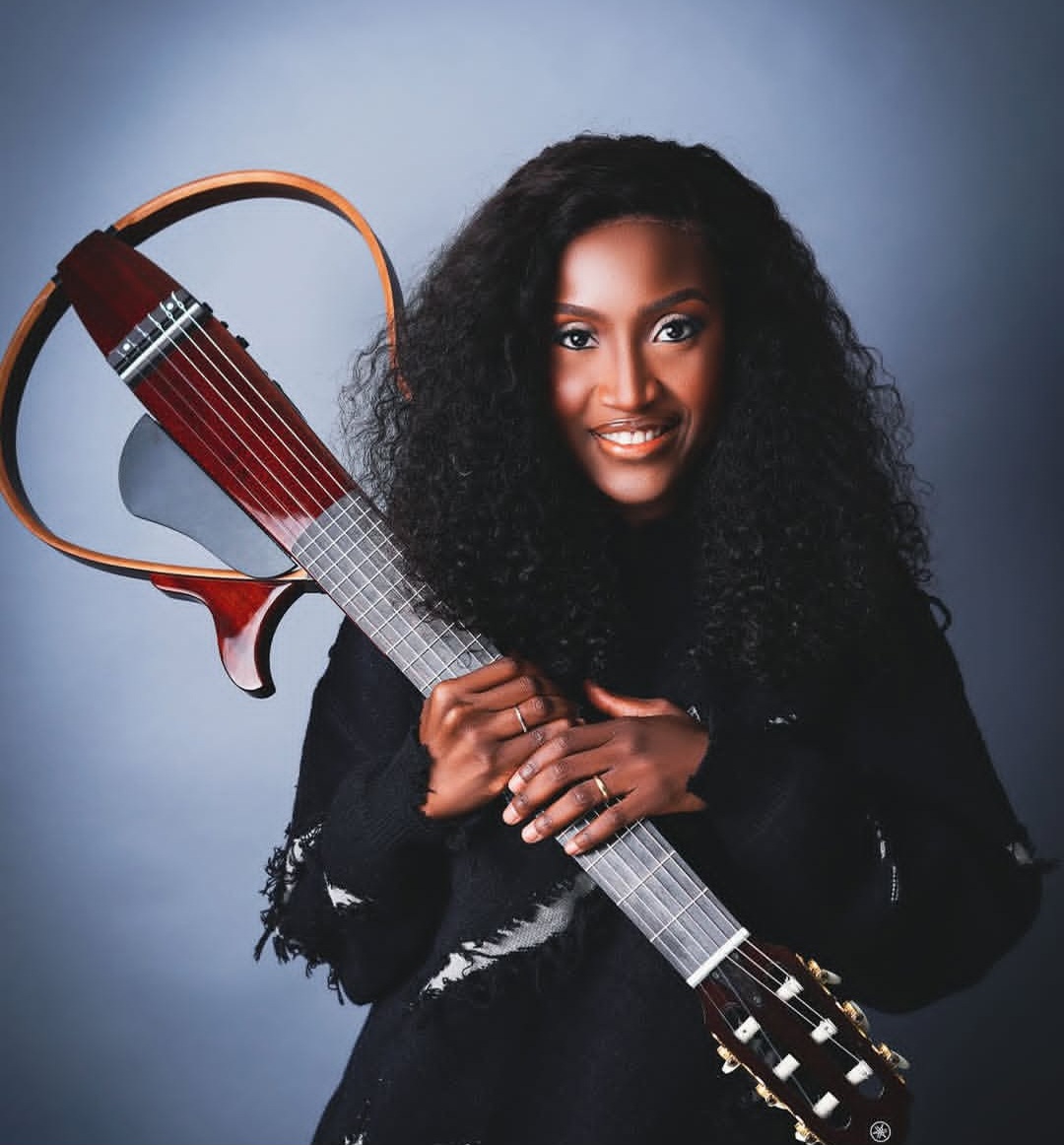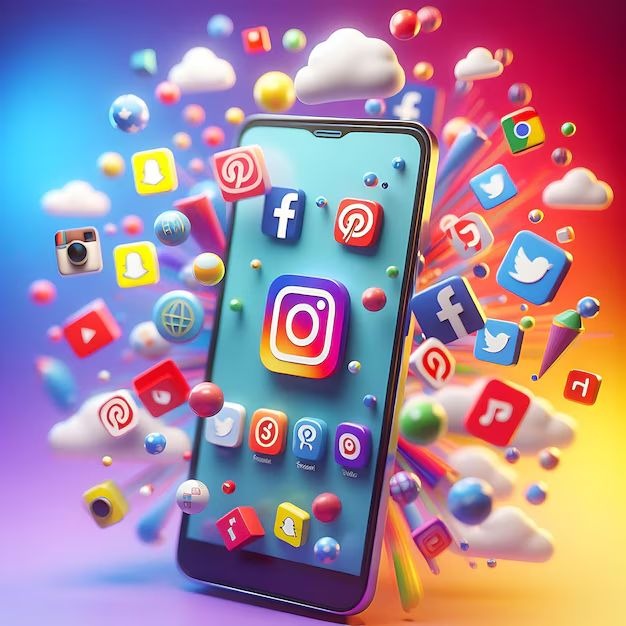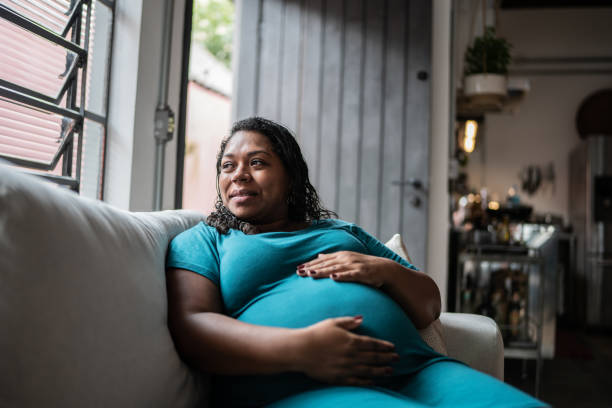As a child of a clergyman, conversing with Beebee Bassey stirred something deeply familiar in me — a quiet kind of nostalgia. I remembered the pressure, both silent and spoken, to shape my dreams into something that fit neatly within the image of a clergy family — measured, holy, and mostly predictable. But here was Beebee: a woman who didn’t just colour outside the lines, she redrew the canvas entirely.
Watching her over the years from her participation in the Nigerian Idol 2014, I have seen her stand confidently in her purpose — guitar in hand, voice unwavering. I saw not just an artist who has mastered the art, but a woman who fought to become a phenomenal personality. And more than ever, I have realized that she isn’t just singing — she is a testifier.
Her energy Is soft but grounded — the kind of presence that makes you lean in before she even speaks. Bassey, the Nigerian-born, UK-based singer-songwriter, has a voice that soars and a story that stirs.
Diagnosed with dyslexia as a child, Beebee faced a lot of struggle with reading and writing. But amidst all, she somehow found a rhythm, a melody and a voice. Music became her strength, and weapon of self expression.
Raised in a pastor’s home in Calabar, Nigeria, her first stage was the church, barefoot and full of joy. Even as a young girl, her voice carried a kind of spiritual gravity.
From singing in Sunday school to performing on international stages, Beebee’s journey hasn’t been fast — but it has been steady and full of purpose. She paid her dues. Shows like Nigerian Idol and the Karaoke World Championship gave her exposure, but it was her talent and message that gave her staying power. Her 2020 single Incredible God was well-received in the gospel scene, but it was the emotional truth in her later songs like Toxic Places that really connected her to people.
We invited Beebee Bassey to discuss her journey, her faith, her progress and her challenges.
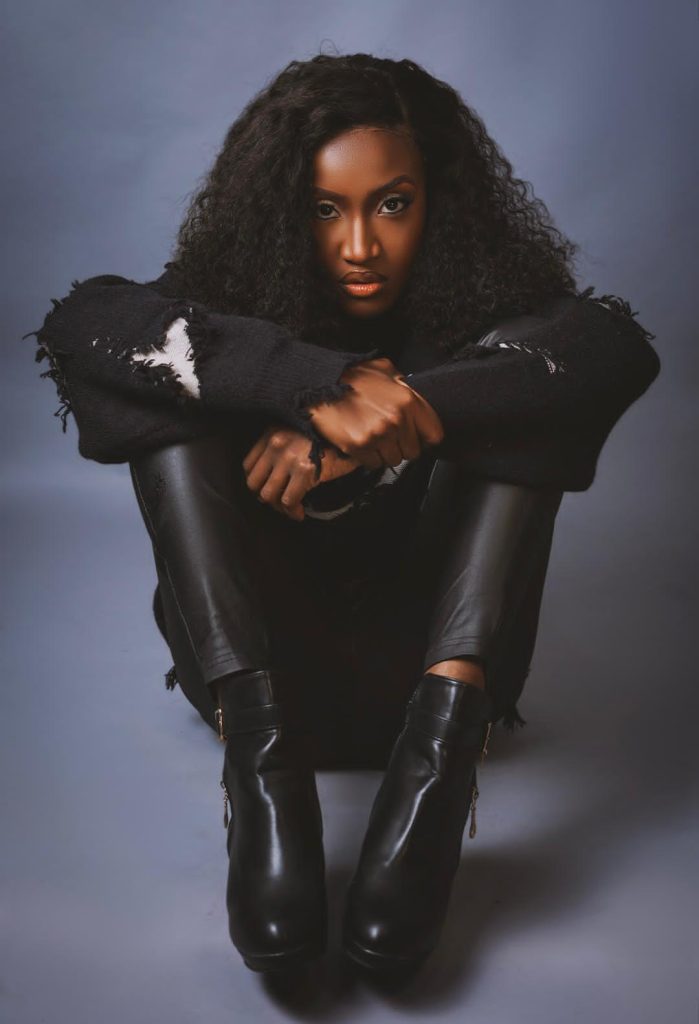
Photo Credit: Sampitax Photography
You’ve described music as your “sanctuary.” What do you mean by that?
BEEBEE BASSEY: I grew up in a preacher’s home, where silence was spiritual, and sound was sacred. But I struggled with dyslexia. Reading was hard. I felt invisible in school. But the moment I sang, I felt seen — by myself, by God, maybe even by the world. Music gave me rhythm where there was confusion. It gave me language when I had none.
SEE ALSO: Victoria Agina-Okoye: PCOS Is A Part Of My Story
Has your experience with dyslexia shaped the way you write songs?
BEEBEE: Absolutely. I don’t always write in a “typical” way. Sometimes the lyrics come as images or melodies first. I feel my songs before I write them. And maybe that’s why they connect emotionally. I’m not trying to impress anyone. I’m trying to survive. And in that survival, I think people find their own reflection.
Your song Toxic Places tackles domestic abuse — a subject most artists shy away from. Why did you decide to go there?
BEEBEE: Because the world is full of silent sufferers. We sing “Hallelujah” but go home to pain we don’t speak about. I’ve seen women smile through trauma, hiding behind scriptures. Toxic Places is beyond a song — it’s a conversation we’re long overdue for. It’s a mirror. It’s a lived experience. My experience in an abusive relationship gave me firsthand insight into how easy it is to suffer in silence. During that period of my life, I couldn’t speak out — I was afraid of being judged, afraid of being cast aside or misunderstood by the public. For a long time, I carried the pain quietly. But now that I’m in a better, healthier place, I can finally talk about it. Through my music, I want to bring healing and raise awareness about the often hidden struggles of domestic abuse — especially the emotional and psychological kinds that aren’t always visible but are just as damaging.
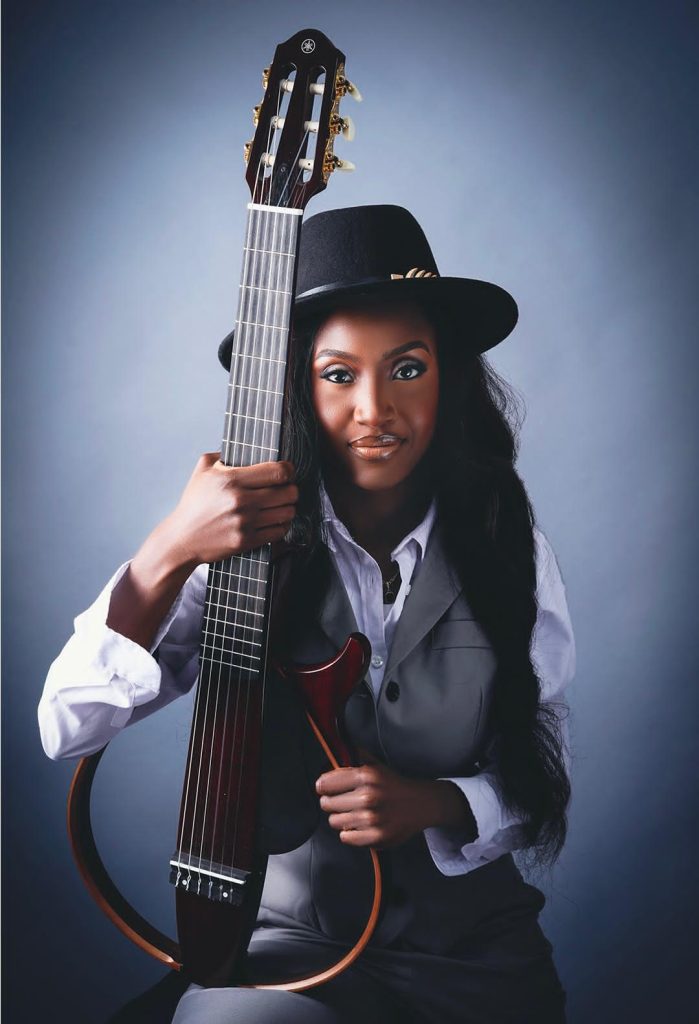
How do you balance faith and fear in your music?
BEEBEE: Faith is not the absence of fear — it’s the decision to sing anyway. Sometimes I doubt. Sometimes I cry. But every time I step on stage, or have a project, I remember: I’m here for a reason. God didn’t give me this voice for silence.
You’ve performed in the UK, UAE, and across Nigeria. Do you feel your message travels well across cultures?
BEEBEE: The Spirit has no accent. Pain doesn’t care what country you’re from. When I sing, I want people to feel like they’re not alone. Whether it’s London, Lagos, or Dubai — people crave hope. That’s my job. To deliver it, wrapped in harmony.
What’s one thing people misunderstand about gospel music?
BEEBEE: That it’s just for church. Gospel is truth — whether it’s on a Sunday or in your car on a Monday morning. It’s soul music. It’s protest music. It’s survival music. And I’m not afraid to blend it with rock, soul, jazz — whatever the message needs.
BEEBEE: Stop trying to sound like everyone else. Your story is your superpower. Don’t edit your pain. Don’t shrink your joy. And don’t wait for permission to begin.
Last question — if your music could say one thing to the world, what would it be?
BEEBEE: That healing is possible. Even in the dark. Especially in the dark.
As our conversation winds down, it’s clear that Beebee Bassey is not the regular kind of artist or singer — she is a vessel of truth, healing, and light. Her story is not one of overnight fame. Her name rings steady courage, of finding strength in vulnerability and purpose in pain. And as she continues to rise, guitar in hand and heart wide open, one thing is certain: Beebee Bassey was born to be heard.
Should we be expecting a new sound from you anytime soon? Is there anything cooking in the studio right now?
BEEBEE: Yes! I’m actually working on a project I can’t wait to share with you all. I’m really excited about it. The title is “Hope and Hold On” — it’s something very close to my heart, and I believe it’s going to speak to a lot of people who need encouragement right now.
Well, we’re anticipating!!

